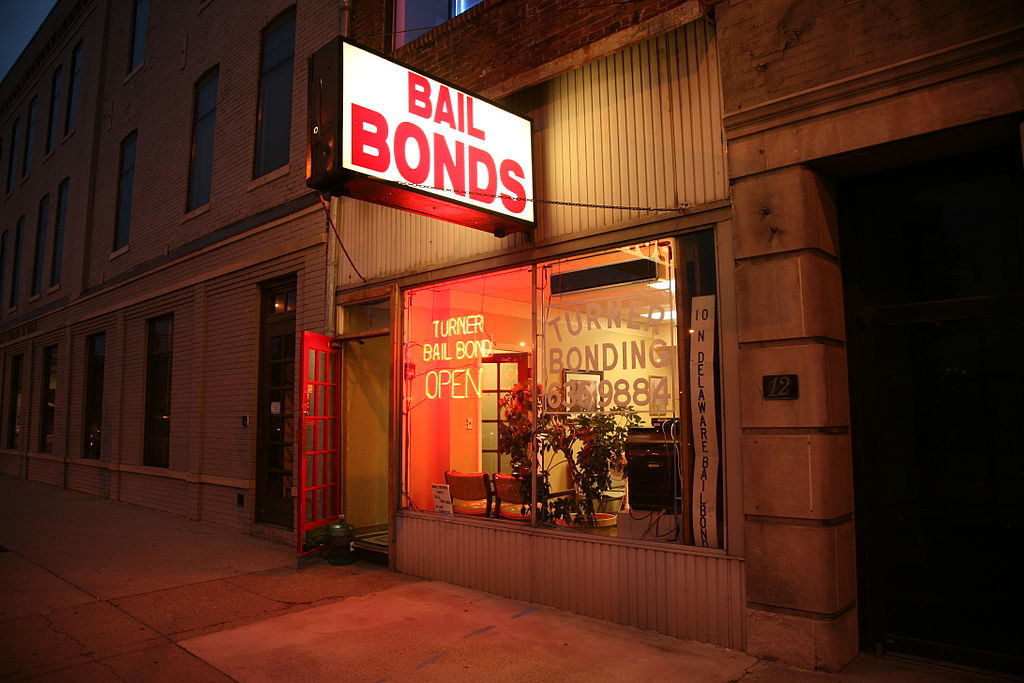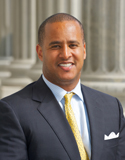
Nearly 9,000 people are incarcerated while awaiting trial in South Carolina and more than a third of detainees nationwide are unable to afford bond, according to the Pretrial Justice Institute.There are no statewide statistics on what their charges or the amount of bonds set at by judges, according to multiple sources contacted for this story, but several people in the law enforcement community say many are black, poor, and unable to post the few hundred dollars needed to get out of jail.

“The system is in dire need of change,” criminal defense attorney and S.C. Rep. Todd Rutherford told Statehouse Report.
But it has been four years since South Carolina lawmakers discussed how the state deals with pre-trial defendants. And that was a discussion on how to revoke bond for those with a history of repeated offenses. The proposed bill did not pass.
While other, typically more liberal states in the nation have moved toward reforming bond systems, the conversation appears to relegated to the local level in South Carolina. For example, Charleston County is two years into a grant-funded program that uses 14-data points to help judges screen defendants to determine whether to set a surety (cash) or personal recognizance (no cash) bond.
South Carolina Victim Assistance Network Executive Director Laura Hudson of Columbia said she’s against any effort to reduce the use of surety bonds, which she says creates accountability among those accused of crimes.
F for pretrial detention
In South Carolina, a pretrial defendant has a right to a personal recognizance bond (read: cashless bond) if he or she does not pose a flight risk or a danger to the community. But judges have broad discretion. Fourteenth Circuit Solicitor Duffie Stone of Beaufort County said he has seen bond set for as little as $500.
In a 2017 report card by Pretrial Justice Institute (PJI), South Carolina was given an F for pretrial detention. According to the report, 17.5 residents per 10,000 were detained pretrial.
More than a half million people are remain in jail while awaiting trial in the United States, according to Prison Policy Institute.
The PJI report said local communities spend at least $14 billion annually to detain those awaiting trial. Rutherford said Richland County spends $35 per inmate per day — or $12,775 per inmate per year. The operating costs of the jail, which include inmate expenses, are $7.9 million for the current fiscal year.
The report also found that men of color received higher bail amounts than white men for the same offenses, and that those who cannot afford bail are nearly four times as likely to receive a jail sentence that is up to three times longer than those who can afford bail.
Rutherford said that those awaiting a trial date in a detention center are also more likely to plead guilty to an offense, if only to pay a fine or serve their time so they can return to their jobs and family.
“That’s not theory. That’s not even speculation,” he said. “It happens all the time.”
‘Cashless bond’
A few states have implemented or proposed a system that moves toward a “cashless bond” system — which typically relies on data warehouses to help judges make decisions and eliminates cash bail for those defendants deemed “low-risk.” The states implementing these systems usually still allow money bail to be set for other defendants.
In late August, California became the first state to end cash bond entirely. Those that the court deems dangers to the community or flight risks remain in jail, while others are released while awaiting trial.
Virginia’s attorney general recently proposed eliminating bonds under $5,000 by using that state’s pretrial screening algorithm, and Kentucky is weighing its options on how to reform its bond system.
‘Make our system better’
The chairman of the Charleston County Criminal Justice Coordinating Council wants to be very clear: they are not utilizing or proposing a “cashless bond” system. For the last two years, the council has established a 14-point decision tree to help judges make better and more informed decisions under existing law, Mitch Lucas said.
“Everyone wants to make our system better,” the Charleston County assistant sheriff told Statehouse Report. “There’s three things at the end of the day the CJCC wants to make better and that is to make the criminal justice system more efficient, more effective and more equitable … We’ve got disproportionality and we know there is disparity.”
As of October, Charleston County has seen an 18 percent reduction in its local jail population since the Charleston Safety and Justice Challenge began. The challenge, which is funded through grants by the MacArthur Foundation, aims to reduce the jail population by 25 percent by May 2019. According to Charleston’s 2017 report on the program, personal recognizance bonds increased from an issuance rate of 27 percent in 2014 to 40 percent in 2017.
Lucas said the data that has been accumulated over two years is just now being put to work in the county. The pretrial screenings factor in employment, family and living situation.
“We’re trying to provide the bond setting judge more information so he can make a better, more informed decision,” Lucas said.
‘The prototype is there’
But Lucas was doubtful of a statewide application of the Charleston County system.
“You have to have local people who have to own it,” he said. But, he added, the model “is not that hard to do” and implement in other communities. Already, 52 other communities nationwide are participating in the Safety and Justice Challenge.
Also in the Lowcountry, Stone said he’d like state lawmakers to seriously consider bond reform. He said judges should always grant personal recognizance for those that are not flight risks or dangers to the community.
“Constitutionally, it requires it,” Stone said. He added that additional data like that used for sentencing in the 14th Circuit could be helpful in judges’ decision-making. “There is a need for a wholesale bond restructuring.”
However, he’d also like to see the state allow judges to deny bond to those that are dangers to the community, keeping them incarcerated until their trial.
On the state level, two lawmakers who have proposed sentencing reform — Rutherford and Republican Rep. Murrell Smith of Sumter — appear to differ on the need for bail reform in South Carolina.
Rutherford would like to see risk assessments like those employed in Charleston County implemented on the statewide level.
“The science is already there. The prototype is already there,” Rutherford said. “We have nothing like that.”
But Smith said whatever the state does should be balanced between bond reform and victims’ rights.
“There is no one size fits all for every case,” Smith said. He said a judge should always be able to decide how a pretrial defendant obtains release and added, “I don’t think it would alter much what we have right now.”
- Have a comment? Send to: feedback@statehousereport.com


